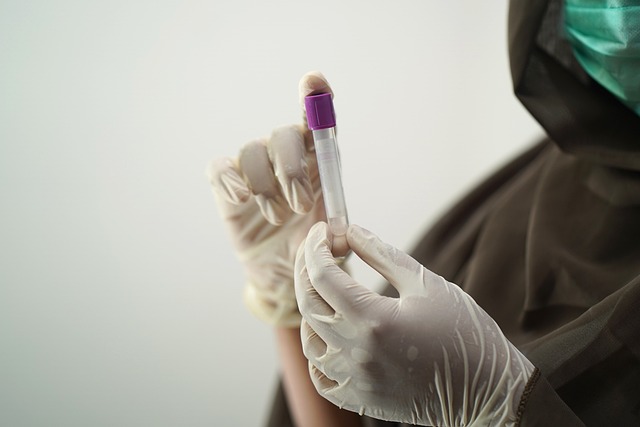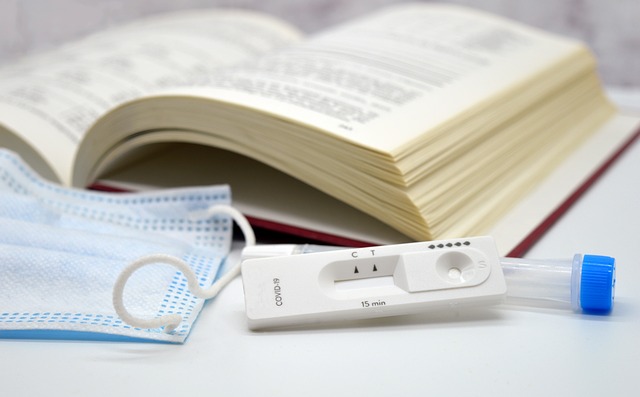A UK Cholesterol Blood Test is a critical tool for evaluating heart health by directly measuring lipid levels, distinguishing between 'good' HDL and 'bad' LDL cholesterol. The NHS recommends regular screenings for individuals over 40 or with risk factors to detect high LDL cholesterol, which can lead to atherosclerosis and increase heart disease and stroke risks. Proper test preparation is essential, including fasting for at least 8-12 hours, hydration, and avoiding high-fat diets before the test. On the day of the test, wear sleeved clothing and ensure you have not taken medications that could affect results, or have any conditions that might influence your cholesterol levels. The test itself is a simple blood draw from an arm vein. Post-test, your healthcare provider will use the results to create a personalized health plan or adjust statin usage if necessary, facilitating early detection and management of cardiovascular risks. Regular monitoring is key for maintaining heart health and preventing cardiovascular events, with targets for total cholesterol under 5 mmol/L, LDL below 3 mmol/L, and HDL above 1 mmol/L. Understanding your cholesterol levels through a UK Cholesterol Blood Test is the first step toward proactive heart health management.
Cardiovascular health is a cornerstone of overall well-being, and understanding one’s cholesterol levels through a UK Cholesterol Blood Test is pivotal in maintaining this. This article elucidates the significance of these tests in the context of heart health, offering insights into what to expect during preparation and interpretation of results. By demystifying the process and highlighting the role of these tests in early detection and prevention strategies, readers can make informed decisions about their cardiovascular health.
- Understanding Cholesterol: The Role of UK Cholesterol Blood Tests in Cardiovascular Health
- Preparing for Your UK Cholesterol Blood Test: What to Expect and How to Prepare
- Interpreting Your Results: A Guide to Cholesterol Levels and What They Mean for Your Heart Health
Understanding Cholesterol: The Role of UK Cholesterol Blood Tests in Cardiovascular Health

UK cholesterol blood tests play a pivotal role in monitoring an individual’s cardiovascular health by providing a direct measure of lipid levels within the bloodstream. These tests, widely available across the United Kingdom’s healthcare system, are designed to detect various types of cholesterol, including high-density lipoprotein (HDL), commonly known as ‘good’ cholesterol, and low-density lipoprotein (LDL), termed ‘bad’ cholesterol. HDL helps in the reversal of atherosclerosis by transporting excess cholesterol back to the liver for removal from the body, whereas LDL is responsible for delivering cholesterol throughout the body. A high level of LDL cholesterol can lead to plaque build-up within artery walls, increasing the risk of heart disease and stroke.
The UK National Health Service (NHS) recommends regular cholesterol screenings as part of a preventative healthcare strategy, particularly for those over the age of 40 or those at higher risk due to lifestyle factors like smoking, obesity, or a family history of heart disease. The results from a UK cholesterol blood test can inform personalized diet and exercise plans, and when necessary, guide medical professionals in prescribing medications such as statins to manage lipid levels effectively. By identifying risk factors early through these comprehensive tests, individuals can take proactive steps towards maintaining optimal cardiovascular health, reducing the incidence of cardiovascular events, and improving overall well-being.
Preparing for Your UK Cholesterol Blood Test: What to Expect and How to Prepare

When preparing for a UK Cholesterol Blood Test, understanding the process and necessary preparations can alleviate any anxiety and ensure accurate results. Prior to your appointment, it’s advisable to adhere to a regular diet. Avoid any unusual or excessive fat intake in the days leading up to the test, as this can skew the outcomes. Hydration is key; drink plenty of water to maintain normal body functions and prevent dehydration, which might affect the test’s accuracy.
On the day of the UK Cholesterol Blood Test, wear a sleeved shirt or top to make venous access easier for the healthcare professional. Fasting is typically required, so do not eat or drink anything except water for at least 8-12 hours before the test. This fasting period allows for more accurate measurement of your cholesterol levels. It’s also important to inform your healthcare provider of any medications you are taking and whether you have had recent illnesses or significant dietary changes, as these can influence your results. Once at the clinic or lab, the procedure is straightforward: a healthcare professional will locate a vein, usually in your arm, clean the area with an antiseptic, and then insert a needle to draw blood. The entire process is quick and relatively painless, and soon you’ll have a clearer picture of your cholesterol levels and cardiovascular health. Remember to follow any specific instructions provided by your healthcare provider, as they may vary based on individual circumstances or the type of test ordered.
Interpreting Your Results: A Guide to Cholesterol Levels and What They Mean for Your Heart Health

Understanding your cholesterol levels is a crucial step in managing your heart health, and regular UK Cholesterol Blood Test is the first diagnostic tool in this journey. Your total cholesterol level is a sum of all cholesterols in your blood—including LDL (‘bad’) cholesterol, HDL (‘good’) cholesterol, and triglycerides. The results are typically presented as millimoles per litre (mmol/L) in the UK. For a healthy heart, total cholesterol should be under 5 mmol/L, with LDL cholesterol ideally below 3 mmol/L. HDL cholesterol, on the other hand, should be above 1 mmol/L. High-density lipoprotein (HDL) acts as a ‘scavenger’ by removing excess cholesterol from the bloodstream and transporting it to the liver for breakdown and removal from the body. In contrast, low-density lipoprotein (LDL) is responsible for transporting cholesterol from the liver to other parts of the body where it can build up in artery walls, potentially leading to atherosclerosis and increasing the risk of heart attack or stroke. The UK Cholesterol Blood Test results will help your healthcare provider assess your cholesterol levels and discuss lifestyle changes, dietary adjustments, or medication that may be necessary to improve your lipid profile and protect your cardiovascular health. Regular monitoring post-test is also important to track any changes over time and to ensure long-term management of cholesterol levels.
Regular monitoring of cholesterol levels through UK Cholesterol Blood Tests is a pivotal step in maintaining cardiovascular health. Understanding the role these tests play, preparing adequately for them, and interpreting their results empowers individuals to take proactive measures towards their heart health. It’s clear that early detection and management of cholesterol can significantly reduce the risk of heart disease, emphasizing the importance of these tests within the UK healthcare system. Individuals should consider incorporating UK Cholesterol Blood Tests into their regular health check-up routine to stay informed about their cholesterol status and make lifestyle changes as necessary.
